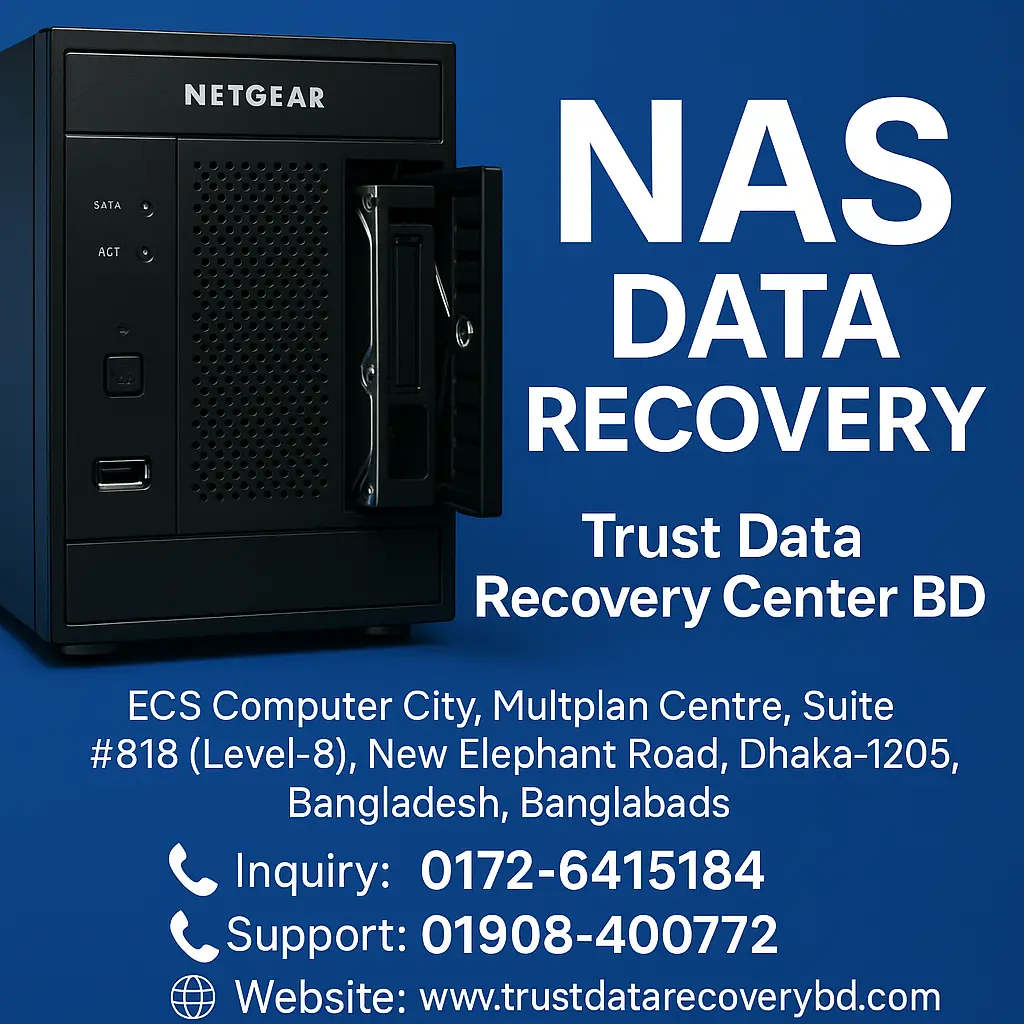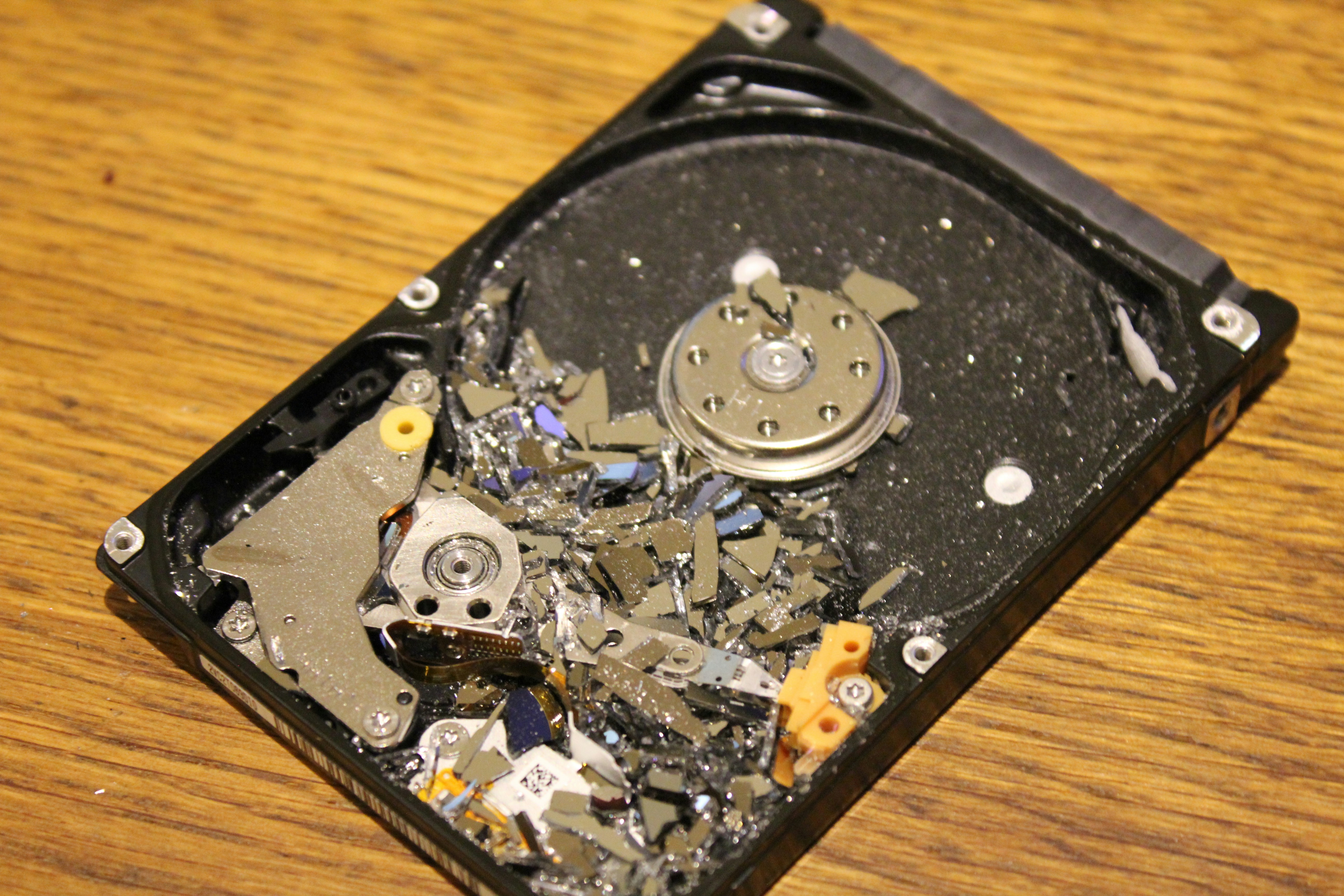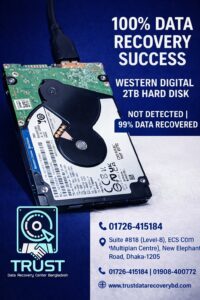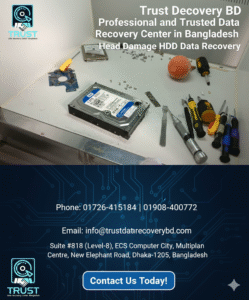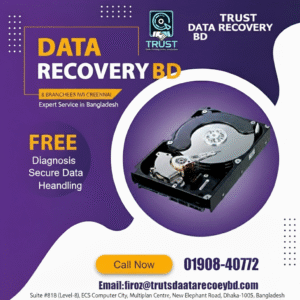Introduction to Server Data Recovery
In today’s digital landscape, server data recovery has become an essential element for businesses, particularly in Bangladesh, where reliance on technology is ever-growing. Server data recovery refers to the process of retrieving lost or corrupted data from servers due to various factors that may lead to data loss. This service not only helps organizations restore critical information but also minimizes the impact on business operations.
Common reasons for server failures include hardware malfunctions, software issues, human error, and natural disasters. Hardware malfunctions, such as hard drive failures or power outages, can occur unexpectedly, disrupting access to vital data. Software issues may arise from corrupt files, buggy updates, or incompatible applications, leading to data inaccessibility. Additionally, human error—such as accidental deletions or misconfigurations—can significantly jeopardize data integrity. Furthermore, natural disasters such as floods, earthquakes, or fires can result in catastrophic data loss, leaving businesses vulnerable.
The potential impact of data loss on businesses in Bangladesh can be severe, affecting not only immediate operations but also long-term profitability and reputation. Loss of customer information, project files, and financial records can lead to service interruptions, loss of trust, and legal ramifications. Therefore, having a reliable server data recovery service provider is crucial for organizations to mitigate these risks. A trusted provider can ensure that when data loss occurs, the recovery process is handled swiftly and efficiently, restoring access to essential data while minimizing downtime.
In conclusion, server data recovery is an imperative service in the modern business landscape. Understanding the causes and implications of server failures is essential for organizations aiming to protect their data and maintain smooth operations. Businesses in Bangladesh must prioritize partnering with trustworthy data recovery service providers to safeguard their valuable information assets.
The Role of a Trusted Data Recovery Center
A trusted data recovery center serves as a crucial lifeline for individuals and organizations that face data loss due to hardware failure, accidental deletion, or other unforeseen incidents. Such centers are distinguished by specific characteristics that ensure they can effectively recover lost data while maintaining consumer trust and satisfaction. The foremost attribute of a reliable data recovery service provider is their certification and compliance with industry standards. Many of these centers hold certifications such as ISO 9001 for quality management systems and ISO/IEC 27001 for information security management, reflecting their commitment to best practices in handling sensitive data.
Experience also plays a significant role in differentiating a trusted data recovery center from its competitors. Those with years of hands-on experience in the field tend to possess a deeper understanding of various data storage technologies and the unique challenges they present. Such expertise allows recovery specialists to formulate and execute tailored strategies for data recovery, significantly increasing the likelihood of successful results.
Technological capability is another vital aspect that defines a trusted data recovery center. These facilities often utilize cutting-edge technologies and state-of-the-art tools that enhance their ability to recover data from diverse storage media, including hard drives, SSDs, RAID systems, and more. Data recovery software, along with hardware resources such as clean rooms designed for repairing hardware, also contributes to their success rates.
Consumer confidence is paramount when selecting a data recovery service. A trusted facility typically provides transparent service agreements, detailed case studies, and customer testimonials to reassure clients of their credentials. In addition, a genuine commitment to data privacy and confidentiality policies is essential in establishing and maintaining this trust, ensuring that clients feel secure about their sensitive information. Ultimately, partaking in the services of a trusted data recovery center can be vital for safeguarding essential data and mitigating potential losses.
Evaluating Server Data Recovery Providers
When it comes to selecting a reliable server data recovery provider in Bangladesh, a systematic evaluation approach is essential. This process begins by assessing the provider’s reputation in the industry. A well-established data recovery service typically has a history of successful recoveries and is known for its credibility. Consequently, seeking out providers with a long-standing presence and positive industry feedback can be beneficial.
Customer reviews serve as a crucial indicator of a provider’s quality of service. Websites and forums dedicated to technology or IT support often feature testimonials from previous clientele. Analyzing this feedback can provide valuable insights into other users’ experiences, allowing potential clients to gauge trustworthiness and reliability. Additionally, it is advisable to look into any case studies or success stories published by the provider, as these can offer concrete examples of their recovery capabilities.
Another vital aspect to consider is the success rate of the service. A high success rate in recovering lost data indicates a provider’s expertise and proficiency. While no company can guarantee 100% recovery, those with significant success rates offer a level of assurance that may sway your decision.
Turnaround time is also an important criterion. Data loss situations can be time-sensitive, so evaluating how quickly a provider can initiate recovery efforts is critical. Providers who offer expedited services at a reasonable cost may be preferable in urgent situations.
Confidentiality policies are paramount when dealing with sensitive data. Ensuring that the server data recovery service adheres to stringent confidentiality protocols demonstrates their commitment to protecting client information. Additionally, transparent pricing is a key concern. Understanding the fee structure and expected costs involved in the data recovery process eliminates any hidden charges, allowing for better financial planning. By thoroughly evaluating these criteria, businesses can make informed decisions when selecting a server data recovery provider in Bangladesh.
The Data Recovery Process Explained
The data recovery process typically begins with an initial consultation, during which clients discuss the specifics of their data loss situation with the service provider. This stage is crucial, as it allows the recovery specialist to understand the context of the data loss, whether it resulted from hardware failure, accidental deletion, or a software corruption issue. Following this discussion, a thorough diagnosis is performed. The technician examines the storage device to determine the extent of the damage and the underlying causes of data loss, establishing a clear understanding of what can be recovered and the techniques that will be employed.
Once the diagnosis is complete, the provider will provide a detailed plan that outlines the recovery approach, estimated timeframes, and potential costs involved. It is essential to have transparency during this phase to build trust between the client and the service provider. After approval from the client, the actual data retrieval process begins, often involving the use of specialized software tools and hardware techniques, depending on the nature of the data loss. For example, if the loss is due to physical damage, the recovery may take place in a clean room environment to ensure no further damage occurs during the process. Techniques such as disk imaging or sector-by-sector recovery may also be employed based on the severity of the data loss.
Once the data has been retrieved, the final step is to verify the integrity of the recovered data. This verification process confirms not only that the data is recoverable but also that it is functional and intact. Clients should expect a thorough checking process to ensure that the files are usable and that no corruption exists. A reputable service provider will often provide a report detailing the recovery process and the state of the recovered data, allowing the clients to make informed decisions about restoring their important information. Thus, the data recovery journey, when handled by a skilled provider, is methodical and designed to restore critical data efficiently and safely.
Common Myths about Data Recovery Services
Data recovery services are often enveloped in misunderstandings that can lead to unrealistic expectations among businesses and individuals. One prevalent myth is that data recovery is always successful. While advancements in technology have improved recovery rates, it is important to recognize that not all data can be recovered. Factors such as the extent of damage, the condition of the storage media, and the methods employed significantly influence recovery outcomes. It’s critical for users to understand that while recovery services can often succeed, they cannot guarantee that all lost data can be retrieved, especially in the case of catastrophic failures or drive destruction.
Another common misconception is that all data recovery providers offer the same level of service and expertise. This is far from the truth. Providers vary significantly in their capabilities, equipment quality, and experience. Some firms may specialize in specific types of recovery, such as RAID arrays or SSDs, while others may lack the necessary skills and tools. This variation can affect the likelihood of a successful recovery as well as the time and cost involved. Therefore, selecting a reputable service provider with a proven track record in successfully recovering data is essential. Researching customer reviews and asking for referrals can help in this decision-making process.
Moreover, many believe that only professionals can perform data recovery. While it is advisable to consult professionals when dealing with significant data loss, minor issues can often be resolved by individuals using user-friendly software. However, proceeding with caution is crucial. Incorrect attempts may result in permanent data loss. As a result, recognizing when it is appropriate to seek professional help is vital. By dispelling these common myths, individuals and businesses can better navigate their data recovery options and set realistic expectations for the process.
Preventative Measures and Best Practices
To minimize the risk of data loss, businesses must adopt a proactive approach that includes several preventative measures and best practices. One of the most crucial strategies is to implement regular and comprehensive data backups. By maintaining multiple copies of data in different locations, whether through on-site storage systems or cloud-based solutions, organizations can safeguard their information against unexpected server failures and other unforeseen incidents. Scheduling automatic backups on a daily or weekly basis can significantly reduce the risk of data loss resulting from hardware malfunctions or cyberattacks.
In addition to regular backups, consistent server maintenance is vital. This involves monitoring the hardware and software performance of the servers regularly. Routine checks can help identify vulnerabilities and potential issues before they escalate into significant problems. It is advisable to keep systems updated with the latest security patches and software upgrades, as these improvements often enhance system reliability and combat potential security threats.
Employee training is another essential component of a robust data management strategy. Staff should be educated about the importance of data security—covering topics such as proper data handling, recognizing phishing attempts, and the significance of robust password policies. By fostering a culture of awareness and responsibility regarding data security, employees can play an active role in protecting sensitive information.
Furthermore, integrating professional data recovery services into your overall data management strategy is a prudent measure. Though preventative strategies significantly reduce the risk of data loss, it is imperative to have a recovery plan in place in the event that data loss occurs despite these efforts. Trusted server data recovery service providers in Bangladesh can offer specialized solutions to recover lost data quickly and efficiently. By combining these practices, businesses enhance their resilience against data loss and ensure smoother operations overall.
Cost Considerations for Data Recovery Services
When businesses encounter data loss, one of the foremost concerns is the associated cost of employing a server data recovery service provider in Bangladesh. Understanding the typical pricing structures can assist organizations in navigating this critical aspect effectively. Generally, the cost of data recovery services varies based on several parameters, including the severity of data loss and the type of storage medium involved.
Typically, pricing for data recovery services is structured around basic service tiers such as diagnostic fees, flat rates for standard recovery, or an hourly rate for more complex cases. A preliminary assessment often involves a diagnostic fee that can range from minimal to substantial amounts, depending on the service provider and complexity of the issue. Following diagnosis, providers usually present tailored quotes based on the specifics of the data loss situation, allowing businesses to understand potential costs before proceeding.
Several factors can significantly influence the final cost. The severity of the data loss is paramount; for instance, logical data loss often incurs lower recovery costs compared to more complex situations like physical damage to storage devices. Additionally, the type of storage medium—be it hard disk drives (HDDs), solid-state drives (SSDs), or RAID arrays—also affects pricing, with certain technologies requiring more specialized recovery techniques and tools, thus elevating costs. Furthermore, urgency plays a role; expedited services may carry premium pricing depending on the urgency of recovery needs.
To budget effectively for data recovery services, businesses should consider potential risks and the value of their data. It is prudent to set aside a contingency fund specifically for data recovery, enabling a swift response in emergencies. By obtaining multiple quotes and understanding the scope of needed services, businesses can make informed decisions that align with their budget constraints while effectively addressing data loss occurrences.
Conclusion: Making the Right Choice
Choosing a trusted server data recovery service provider in Bangladesh is a critical decision for businesses that rely on data integrity and availability. Throughout this blog, we have discussed several key factors that must be considered when selecting a service provider, including reputation, experience, certifications, and customer testimonials. A solid track record instills confidence in potential clients, as it demonstrates the provider’s ability to handle a variety of data recovery scenarios effectively.
In addition to evaluating the service provider’s experience, it’s essential to inquire about their recovery methods and technology. Ensure that the company utilizes up-to-date techniques and adheres to best practices in data recovery, as this can significantly influence the success rates of recovery processes. Furthermore, a transparent pricing structure helps businesses to evaluate service providers more objectively, thereby reducing the chances of unexpected costs and enhancing trust.
Another important aspect is customer support. A reliable provider should offer round-the-clock assistance and timely communication, ensuring that clients are informed throughout the recovery process. The peace of mind that comes from having accessible support cannot be overstated, particularly during stressful data loss situations.
Lastly, businesses should develop a proactive data recovery plan. By identifying potential threats and vulnerabilities in advance, companies can create strategies to mitigate these risks, helping to minimize the impact of potential data loss in the future. Ultimately, choosing the right server data recovery service provider is not merely about immediate solutions; it is also about fostering long-term relationships that support businesses in navigating the complexities of data management in today’s increasingly digital landscape.

